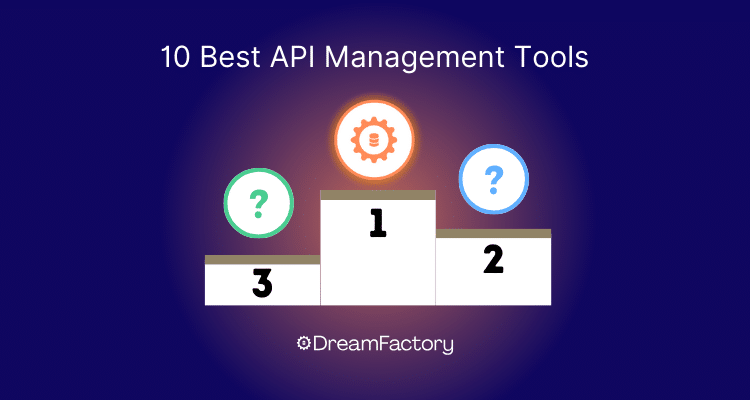Modern application development and IT infrastructure depend heavily on the use of APIs (Application Programming Interfaces) and API Management. APIs offer a standard set of rules for systems and applications to connect and interact. Whether you are integrating a new application into an IT infrastructure or connecting the modular components of a microservices-based application, APIs are one of the fastest and most cost-effective ways to establish those connections.
While these advantages are clear, there is a significant disadvantage to APIs: The process of developing APIs and establishing and managing API connections can be tedious, time-consuming, and costly. Additionally, over 60 percent of companies experience delays in application deployment due to API security concerns.
This is where API management can help. An API manager offers a suite of API-related tools and services to dramatically alleviate the cost, time, and labor bottleneck surrounding APIs. In this guide, we will help you understand the fundamental aspects of API management and help you find the top 3 best API Management tools.
Here's the key things to know about API Management tools:
- API Management platforms simplify API development by providing a catalog of prebuilt REST APIs and tools for custom API creation, accelerating the integration of services into applications.
- The API Manager acts as a gateway between systems and APIs, handling calls, responses, and adding security, stability, and control.
- Essential components of API Management include a Developer Portal for discovering and subscribing to APIs, an API Gateway for managing interactions, and API Lifecycle Management for overseeing the entire process of API usage.
- Benefits of using API Management include building agile, loosely-coupled systems, standardizing connections across various API formats, and providing a searchable API directory for easy development.
- Advanced features include monitoring, logging, streamlined authentication, and standardizing security, making API Management a critical tool for modern businesses.
Overview of API Management
An API Management platform eases the burden of developing custom APIs and API connections by offering developers a catalog of prebuilt REST (REpresentational State Transfer) APIs and tools for quickly developing custom APIs as required. In turn, this empowers developers to rapidly incorporate services and features into their applications and IT projects.
The API Manager functions as a gateway that sits between the system you’re developing and the API for the service you want to call. When your system connects to an API, it only calls the API manager rather than the individual APIs it needs to interact with.
The API manager handles the call to the REST API, gets the response, and returns it to your system. It also adds a layer of security, stability, and control by limiting access to the APIs in the catalog, authenticating users, monitoring for problems, query limiting, and logging data for troubleshooting.
Key Components of API Management
An API management platform will include the following services and features at a minimum:
1. Developer Portal
A developer portal is a feature whereby developers can browse, discover, adopt, test, and subscribe to different APIs for a variety of applications and microservices. The developer portal puts everything you need to rapidly integrate new services at your fingertips. Things like authentication, language translations, map services, and endless other features become easy to add to your projects.
2. API Gateway
An API gateway mediates all of the connections and interactions between your system and the API manager’s catalog of APIs. By managing these interactions, your system only needs to call the API gateway and the gateway manages the actual communication and sends back the results.
3. API Lifecycle Management
API lifecycle management refers to the tools and services for creating, publishing, deploying, versioning, monitoring, discovering, and consuming custom APIs. Some API management platforms, like DreamFactory, include point-and-click API creation tools that automatically generate REST APIs from any database. These tools allow developers to create and publish custom APIs in a matter of minutes.
API lifecycle management helps the consumer of APIs as well. API management platforms facilitate API discovery and access. They also help API consumers communicate feedback and special requests to developers. Ultimately, API lifecycle management reduces the time and cost of developing, publishing, discovering, and securing custom REST APIs.
Benefits of API Management
App developers and enterprises are flocking to API management for the following key benefits:
1. Build an Agile, Loosely Coupled System
Since the API manager handles the connections between your system and the different APIs your system needs to use, it bypasses the need for tightly-coupled connections between the services and apps that comprise your architectural design. In this way, API management supports a more agile, flexible, and loosely-coupled architecture to achieve the following:
- Minimize the chances of coding conflicts when making upgrades
- Speeds up development and reduces time to market
- Make updates and changes faster and more cost-efficient
- Test new services/features faster and more economically
- Make managing microservice-based applications considerably easier
2. Standardize Connections for the Widest Variety of APIs
Whether you are developing an app that needs to call different APIs or integrating different applications into your IT infrastructure, you may be dealing with a variety of API formats and protocols. These may include any of the followings:
- SOAP (Simple Object Access Protocol)
- REST
- XML-RPC (Extensible Markup Language Remote Procedure Call)
- JSON (JavaScript Object Notation)-RPC
You may also need to connect with open APIs, partner APIs, and internal APIs with different authentication requirements and access restrictions. An API manager like DreamFactory automatically manages authentication and access for different types of APIs. Such a platform provides the necessary protocol and format translations to integrate the widest variety of APIs into your projects.
3. Put the Most Useful APIs at Your Fingertips
An API manager puts a searchable API directory at your fingertips to facilitate app development. In this way, the API manager provides a variety of readily-available services. By searching through an organized catalog, developers can quickly discover, use and reuse APIs for the services and features they want to incorporate into their projects.
4. Advanced Monitoring and Logging
An API manager keeps tabs on your connections through advanced monitoring features that provide detailed logging and audit trails. This helps with detecting and troubleshooting problems because you can examine the exact administrator and user actions that triggered the abnormal event or malfunction.
5. Streamline API Authentication
Advanced API management platforms like DreamFactory empower developers to quickly weave authentication services (like Active Directory, Okta, Google, and more) into their apps and projects. This allows you to implement role-based access controls (RBAC), manage API keys, and deploy other security features.
6. Standardize Security
API management makes it easier to standardize security across an enterprise IT infrastructure. The API manager ensures that all of the connections passing through it conform to SOC2 (Service Organization Control), PCI DSS (Payment Card Industry Data Security Standard), GDPR (General Data Protection Regulation), and various security standards your organization might need to adhere to.
API security is a top concern for many organizations, with over nine out of 10 of all companies suffering from an API security vulnerability every year. Many API management platforms optimize specifically to avoid the top security risks as summarized in the OWASP API Security Project.
Just a few of these include:
- Broken user authentication. Authentication methods like RBAC are essential features for APIs, but without an API management platform, there is a stronger potential for broken or misconfigured authentication, resulting in unauthorized access.
- Excessive data exposure. The best API management platforms also provide alerts and safeguards to prevent accidental or poorly considered data exposure. The more data gets exposed, the greater the potential for losing your clients' trust and facing fines due to non-compliance.
- Insufficient monitoring. Many vulnerabilities are discovered too late and the consequences to your business and your clients can be dire. An API management platform works to prevent serious data leaks by monitoring any unusual activity.
7. Implement API Rate Limiting
Most apps and systems can only handle a certain number of requests before they get overloaded, experience slowdowns, or need to shut down. To prevent traffic overload, an API manager can use API rate limiting, API quotas, and spike arrests to throttle and slow down requests from overly-active IP addresses. These features can also trigger fees, cancel requests or send an error code to abusive IPs.
Best API Management Tools
The API management vertical features a wide range of platforms. Here are some of the best API management solutions on the market right now:

1. DreamFactory
Rating: 4.5 on G2
Key features:
- Automatic API Generation
- Automatic API Docs
- Easy to Use Interface
- Fantastic Support
DreamFactory was designed to be the fastest, securest, easiest-to-use API manager for connecting the widest variety of apps, data, and services. One of the most impressive features of DreamFactory is its automatic REST API generation tool.
DreamFactory allows you to automatically generate custom REST APIs for any database in minutes, not the weeks it normally requires for custom coding. DreamFactory streamlines all aspects of API lifecycle management to achieve the most time-efficient and cost-effective development cycle possible.
Here are the most noteworthy features/characteristics of DreamFactory:
- Support for REST, SOAP, SFTP (Secure File Transfer Protocol), MQTT (MQ Telemetry Transport), SQL (Structured Query Language), XML-RPC, JSON-RPC, and email
- Automatic REST API generation tool
- GDPR, HIPAA (Health Insurance Portability and Accountability Act), CCPA (California Consumer Privacy Act) compliant
- Live API documentation
- Support for the most widely-used authentication solutions
- Role-based access control (RBAC) capabilities
- Runs in the cloud or on-premises
Here’s what one user says about using DreamFactory:
“Dreamfactory has solved a lot of key pain points for us. Dreamfactory makes it very easy for us to create APIs that connect to our SQL databases. We love the flexibility this gives us and it has improved our security by preventing our applications from directly connecting to the databases. Dreamfactory makes it easy to manage access to our APIs and services through the use of roles and application-based controls. Access controls are granular enough to be useful, but not too onerous to manage."
Another client reports, "There is currently nothing I dislike about DreamFactory. I cannot fault the platform in any way."
Other users mention the following benefits to using DreamFactory:
- Reduces pain points in REST API generation.
- Simplifies integrations
- Highly agile
- Easy to use and understand
- Easy-to-configure RBAC settings
- Comprehensive services for every aspect of API management
- Excellent support team
- Robust security measures to ensure your APIs are safe from vulnerabilities
And so much more. Customers report overwhelmingly positive experiences, in particular thanks to the low-code/no-code REST API generation features.
A couple of cons may be:
- Certain configurations could be more intuitive
- Occasionally extended response times
2. Boomi
(
Rating: 4.3/5 (G2)
Key Features:
- Full API lifecycle management
- Easy-to-use interface
- API monitoring
Like DreamFactory, Boomi offers an API management solution for building and integrating applications and services. It supports full API lifecycle management with tools to build, publish and control API connections. Unlike DreamFactory, Boomi does not include an automatic API generation tool, so coding custom REST APIs will take longer with Boomi compared to DreamFactory.
Boomi offers solutions and integrations for Amazon, Salesforce, Slack, Okta and much more. They offer useful features for various industries including healthcare, manufacturing, retail and SAAS (Software as a Service) providers.
Boomi includes a range of integration services in addition to API management, such as an ETL (Extract, Transform and Load) platform for large-scale data extract, transform and load operations. These services make Boomi more expensive than DreamFactory.
Unless you need an ETL platform in addition to an API management solution, Boomi could be unnecessarily expensive for your needs. Boomi also comes with a steep learning curve and developers require training and certification to use the platform.
Here’s one customer's experience using the Dell Boomi API management solution:
“While I like most of the features and functions, the training cost is huge compared to the training content. I recently got certified for Dev I & II, where the content does not have Find Changes and web services covered. As a developer, I would expect these basic things to be covered for the huge money I am paying.”
Some pros of Boomi include:
- Fairly easy integration with various services
- Constantly adding new connectors and integrations
- Includes some low-code features and drag-and-drop functionality
- Frequent updates
- A fairly low learning curve
- Provides integration templates for common configurations
- Clunky UI (User Interface)
- Somewhat inadequate documentation
- Requires training and onboarding
- Some processes can be complex, causing a greater margin for error
Despite these disadvantages, Boomi remains one of the top solutions for API management. Many clients report being satisfied with their experience for the most part.
3. Mulesoft Anypoint Platform
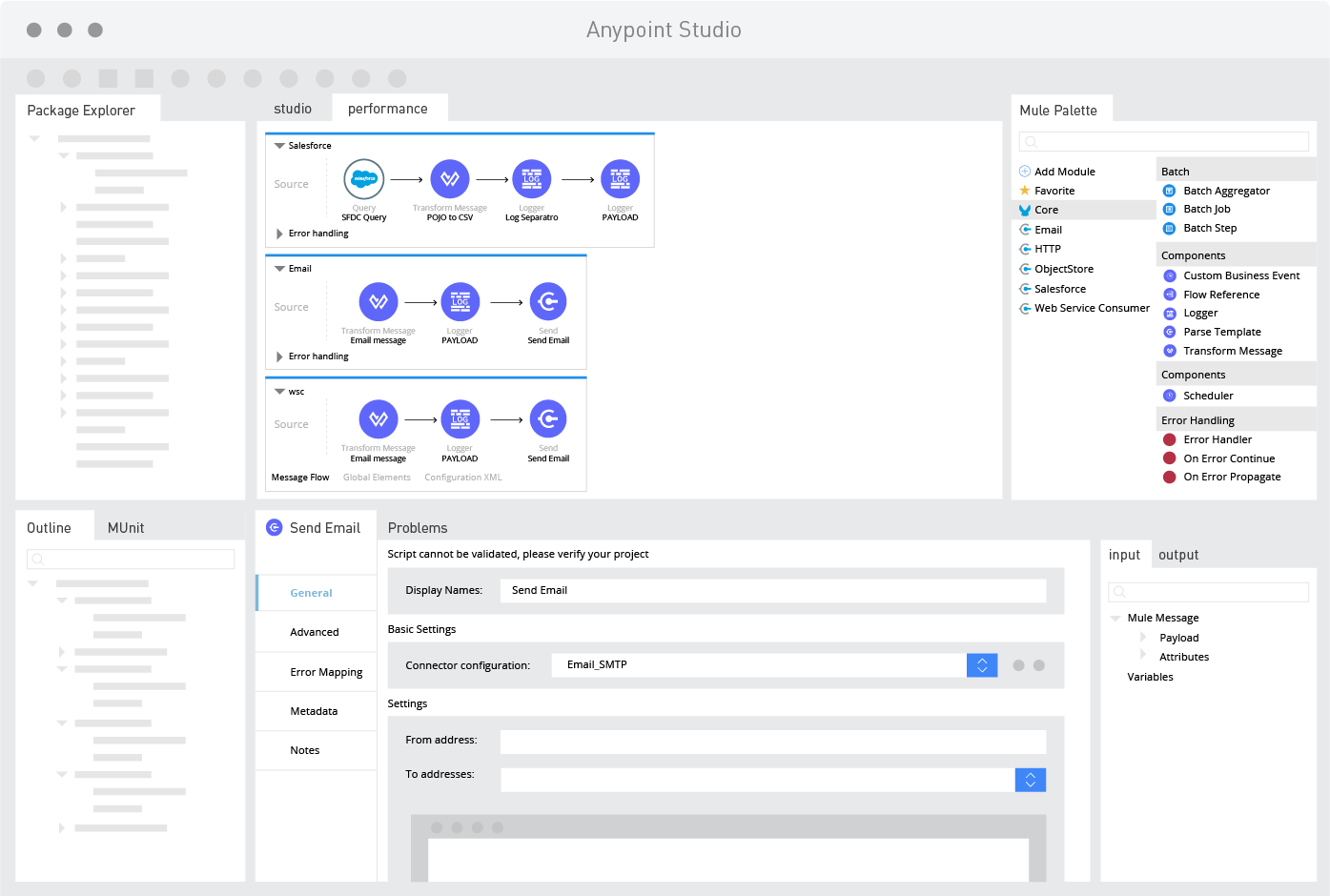
Rating: 4.4/5 (G2)
Key Features:
- Pre-built/custom security
- Integrated access management
- Service mesh for microservices
MuleSoft is a Salesforce company. As a “kitchen-sink” integration solution, the MuleSoft Anypoint Platform serves virtually every integration use-case you can imagine — including ESB, API Manager, API lifecycle manager, and ETL platform.
Some of the major features of MuleSoft include reusable assets, automatic data transformations, API testing, and monitoring, and much more. You can deploy MuleSoft either in the cloud or on-premises. Additionally, the platform provides native compliance for the most common data security standards. It is a trusted and comprehensive solution for many companies.
Although MuleSoft is one of the most popular and widely-used API management platforms, its many services and features come with a high price tag and steep learning curve. Successfully operating the platform will often require one or more Mulesoft engineers.
When you consider that a Mulesoft engineer costs approximately $100,000 a year in wages in addition to the platform's considerable licensing fees and other costs, most small-to-medium-sized businesses will not be able to afford the platform.
MuleSoft is one of the best API management solutions available, but if you do not need its wide range of services, you may find that you can achieve your goals with a more cost-effective solution, like DreamFactory
Here is what one customer said about MuleSoft after two years of using the Anypoint Platform:
“The Anypoint Platform has matured significantly since its inception. It now has API management, analytics, dashboards, self-discovery, and multiple deployment options. As the feature set has gone up, so has the price. It’s starting to price out small to mid-level customers.”
Some other benefits that customers mention are:
- Easy integration with the Salesforce platform and offerings
- Fast deployment
- A multitude of pre-built connectors
- Excellent availability and scalability
- A trusted reputation
- The transparent and simple pricing structure
Some cons include:
- Poor or inadequate training
- Transfer from on-premise to the cloud can be annoyingly complex and difficult
- Very expensive
Smaller companies will need to seek a solution that better matches their price range and needs. This is one reason many companies might choose DreamFactory over MuleSoft.
DreamFactory allows you to rapidly create and connect APIs for your application and IT development projects. With DreamFactory’s automatic REST API generation features and full API lifecycle management tools, the platform provides a new level of development speed, cost-effectiveness, and ease of use.
API management is an essential tool for your business to succeed. Making sure that the solution you choose is right for you will guarantee your company can move forward instead of falling behind.
4. IBM API Connect

Rating: 4.6/5 (G2)
Key Features:
- Robust security features
- Self-service features
- Full API lifecycle management
IBM API Connect offers a comprehensive API management solution, enabling organizations to efficiently manage their entire suite of APIs from one unified platform. This system assists businesses in tailoring their APIs for distinct consumer segments, offering robust governance and version control features.
The platform enhances community engagement through self-service portals and subscription management tools, alongside safeguarding endpoints with a high-grade enterprise gateway.
Pricing options include a software-as-a-service model on Amazon Web Services (AWS), beginning at $83 per month, and a single-tenant service hosted on IBM Cloud, with plans starting at $6,504 per month.
5. Microsoft Azure API Management
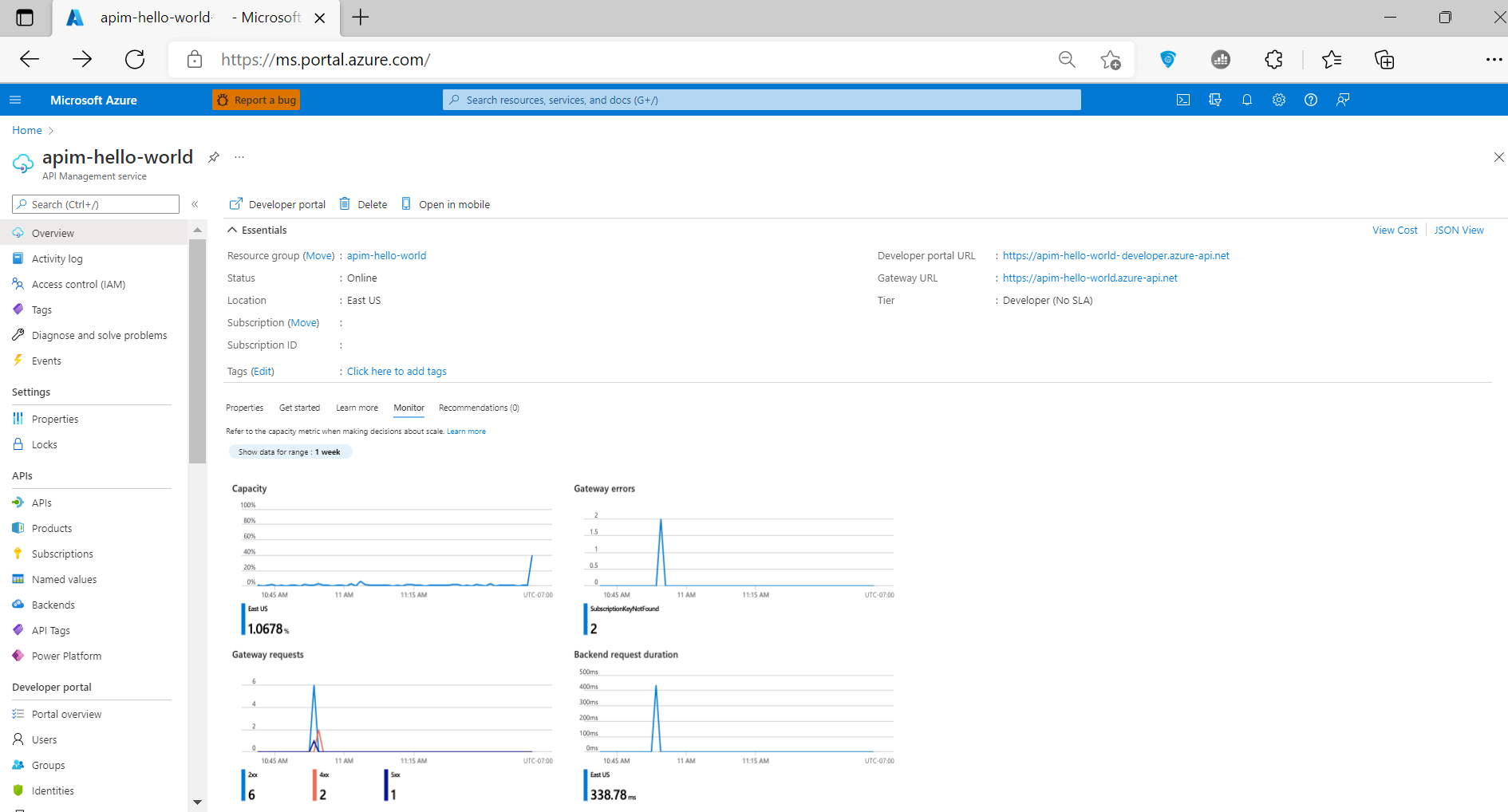
Rating: 4.2/5 (G2)
Key Features:
- Authentication and other security features
- Up to Date data analytics
- Simplified developer portal
Microsoft Azure API Management is a fully managed solution designed to help customers publish, secure, transform, manage, and monitor their APIs throughout their entire lifecycle, from inception to use.
Key functionalities of Microsoft Azure API Management include:
- Security: The service is equipped with robust security features, such as request authentication, authorization, and rate-limiting to safeguard API access.
- Transformation: It provides capabilities for converting legacy web services into modern, efficient REST-based APIs.
- Monitoring and Analytics: Users gain access to immediate analytics, offering insights into usage patterns, traffic trends, error identification, and more.
- Developer Portal: An intuitive developer portal is available for application registration and key acquisition, streamlining the developer experience.
Azure API Management offers various pricing tiers including Developer, Basic, Standard, Premium, and Isolated, with costs calculated on an hourly basis. This pricing structure allows for scalable financial planning according to the specific needs and usage levels of different projects.
6. SAP Integration Suite

Rating: 4.3/5 (G2)
Key Features:
- Real-time processing and monitoring
- Robust security features
- OData and OpenAPI specification compliance
SAP Integration Suite is a comprehensive iPaaS solution that facilitates seamless integration of both on-premise and cloud-based applications, systems, and processes for businesses. It simplifies the API lifecycle, from creation and management to securing APIs.
This platform provides capabilities for real-time processing and monitoring, enhancing businesses' responsiveness to customer, employee, and partner needs. It also includes advanced security measures for API authentication, authorization, and threat detection, aligning with industry compliance standards.
Pricing for SAP Integration Suite starts at $4,150 per tenant per month under the Standard plan. For the Premium plan, interested parties are encouraged to reach out to SAP's sales team for a tailored quote. Additionally, SAP Integration Suite's robust architecture supports a variety of integration scenarios, offering flexibility and scalability to meet diverse business requirements.
7. SwaggerHub
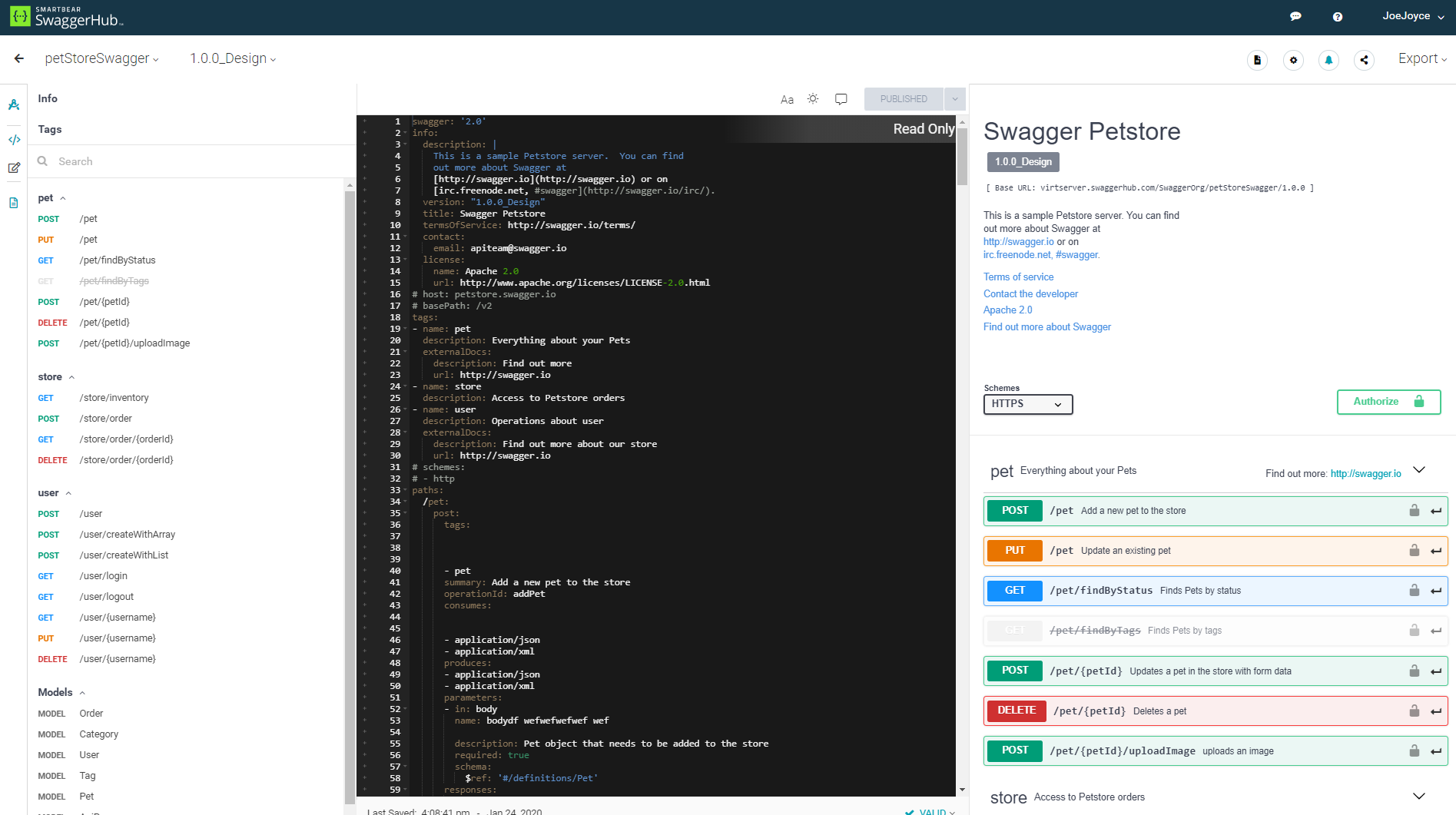
Rating: 4.5/5 (G2)
Key Features:
- Smart API editor
- OpenAPI specification compliance
- Easy-to-use integrations
SwaggerHub is an advanced API management tool designed to assist teams in crafting, evolving, and sustaining high-quality APIs. It features a user-friendly editor aligned with the OpenAPI specifications (OAS), simplifying the API design process.
This platform streamlines the entire API lifecycle, hosting it on a centralized cloud-based repository. It enhances workflow efficiency through automated updates, API version control, and secure integration options that facilitate effortless deployment.
SwaggerHub is tailored to make the API design and management process more efficient and collaborative, offering a comprehensive suite of tools that accelerates and secures the API development process among team members.
In terms of pricing, SwaggerHub provides a free plan alongside two paid options: Team and Enterprise. The Team plan is priced starting at $79 per month. SwaggerHub's scalable architecture and feature-rich environment cater to a wide range of API development needs, from individual developers to large-scale enterprise operations, offering flexibility and robust support for various API projects.
8. Kong Konnect
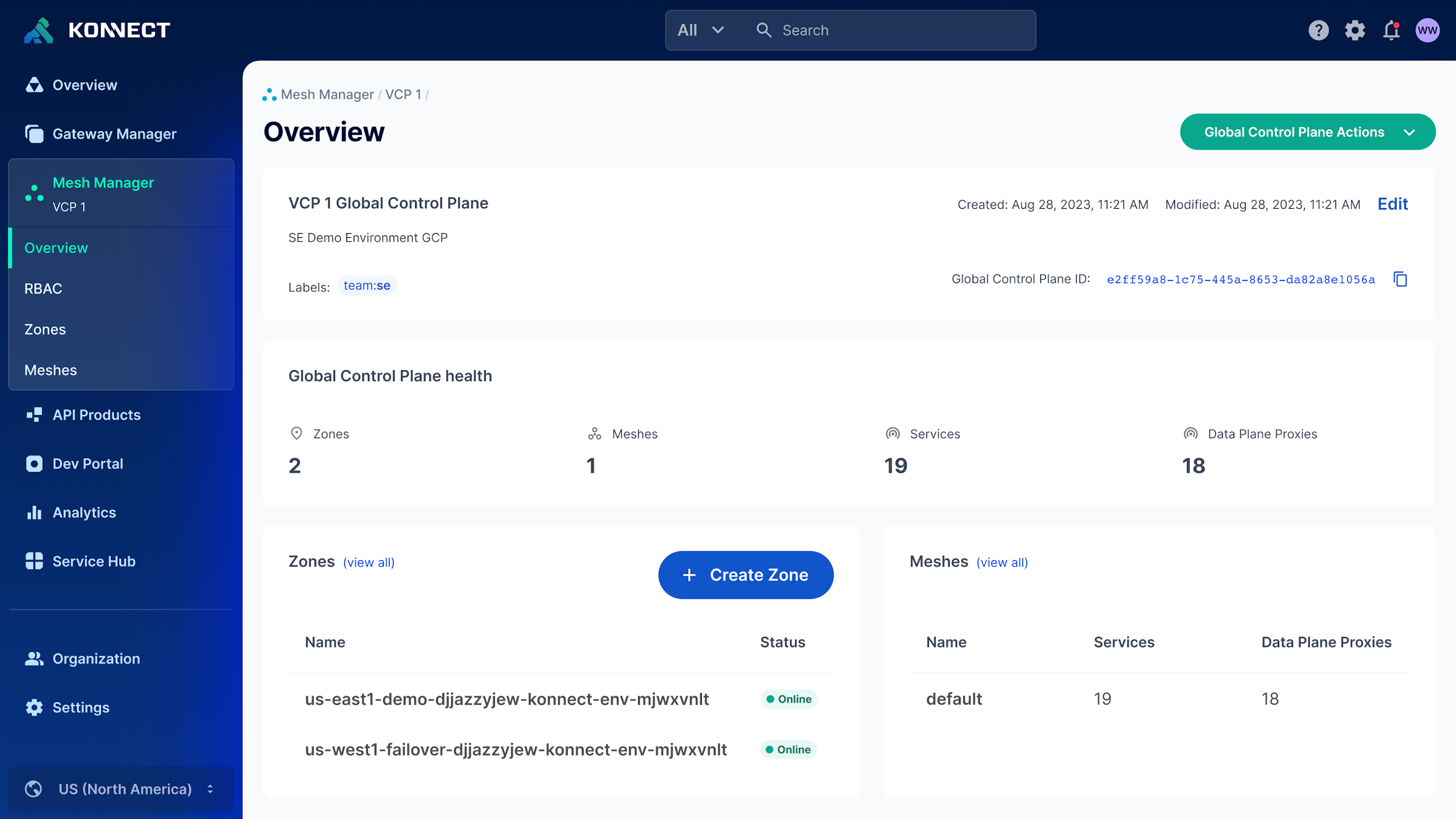
Rating: 4.7/5 (Gartner)
Key Features:
- Multi-cloud API management
- Powerful built-in plugins for security and traffic control
- User friendly Support
Kong Konnect is a comprehensive SaaS-based API lifecycle management solution, expertly crafted to streamline the complexities of managing APIs across multi-cloud environments. This platform empowers organizations to securely manage and connect services on a large scale, across diverse settings.
Kong Konnect excels in fortifying API security and ensuring compliance. It provides customizable controls and plugins, allowing users to adopt best practices in API security and adhere to various compliance standards seamlessly.
Starting with Kong Konnect is easy and accessible with its free tier. For more advanced features, the platform offers the Plus and Enterprise plans. The Plus plan is priced starting at $250 per service per month. In addition to these offerings, Kong Konnect stands out for its user-friendly interface, scalable architecture, and robust support for API analytics and monitoring, making it an ideal choice for businesses seeking to optimize their API strategies efficiently and securely.
9. WSO2
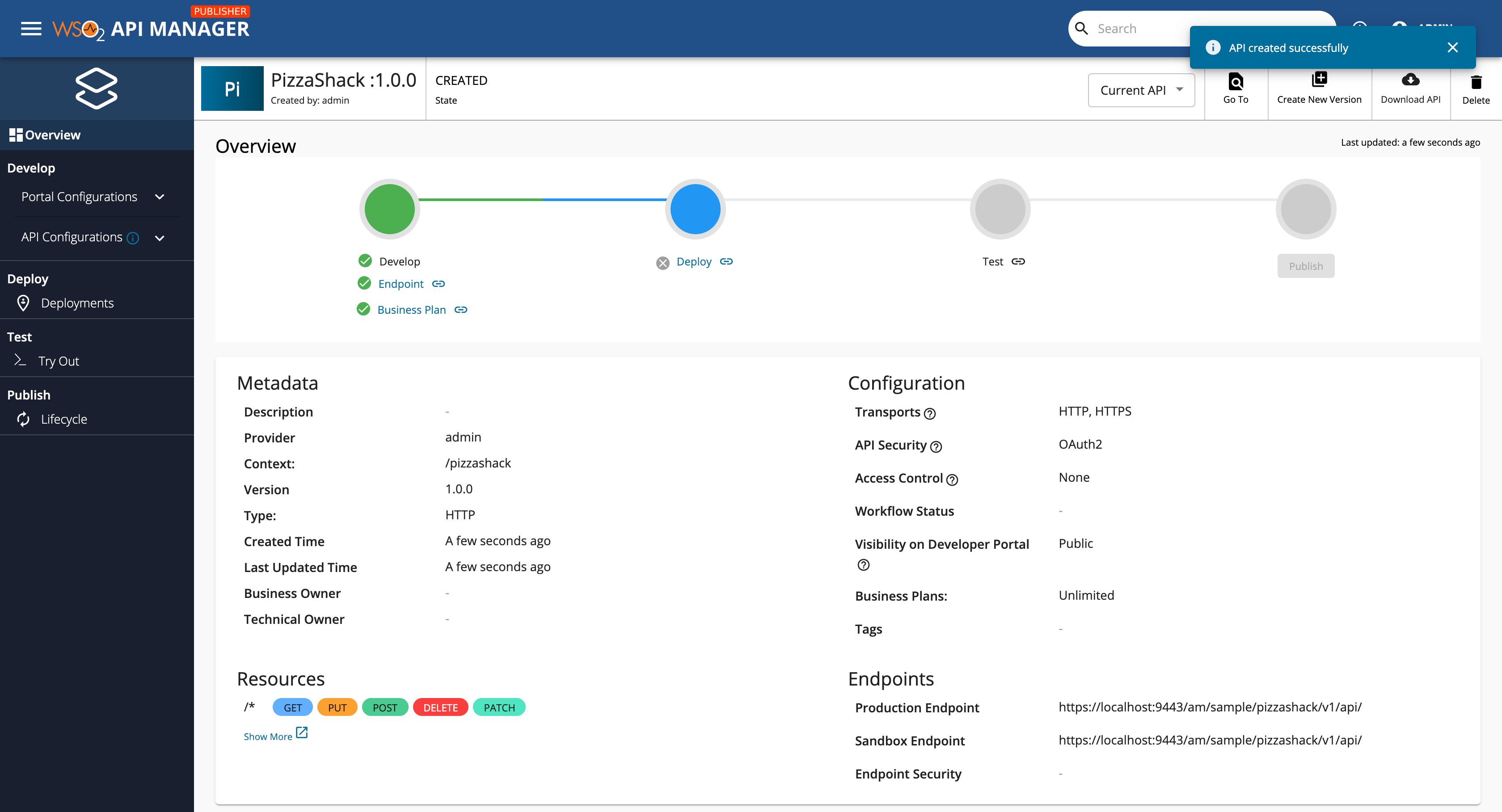
Rating: 4.5/5 (G2)
Key Features:
- Open-source platform
- OAuth, OpenID, Connect, and JWT standards available out of the box
- Full API lifecycle management
WSO2 API Manager is a streamlined, open-source platform focused on enabling organizations to efficiently design, publish, and manage APIs. It's equipped for exposing APIs to both internal and external stakeholders, supporting standard authorization flows, and integrating with existing identity and key management systems.
The platform delivers effective governance throughout an API's lifecycle, facilitating the creation of APIs from existing services and the management and monitoring of both internal and third-party APIs.
WSO2 is free for non-commercial use. Commercial entities seeking enhanced capabilities can subscribe to additional features, with pricing details available upon request from the WSO2 sales team.
10. Postman
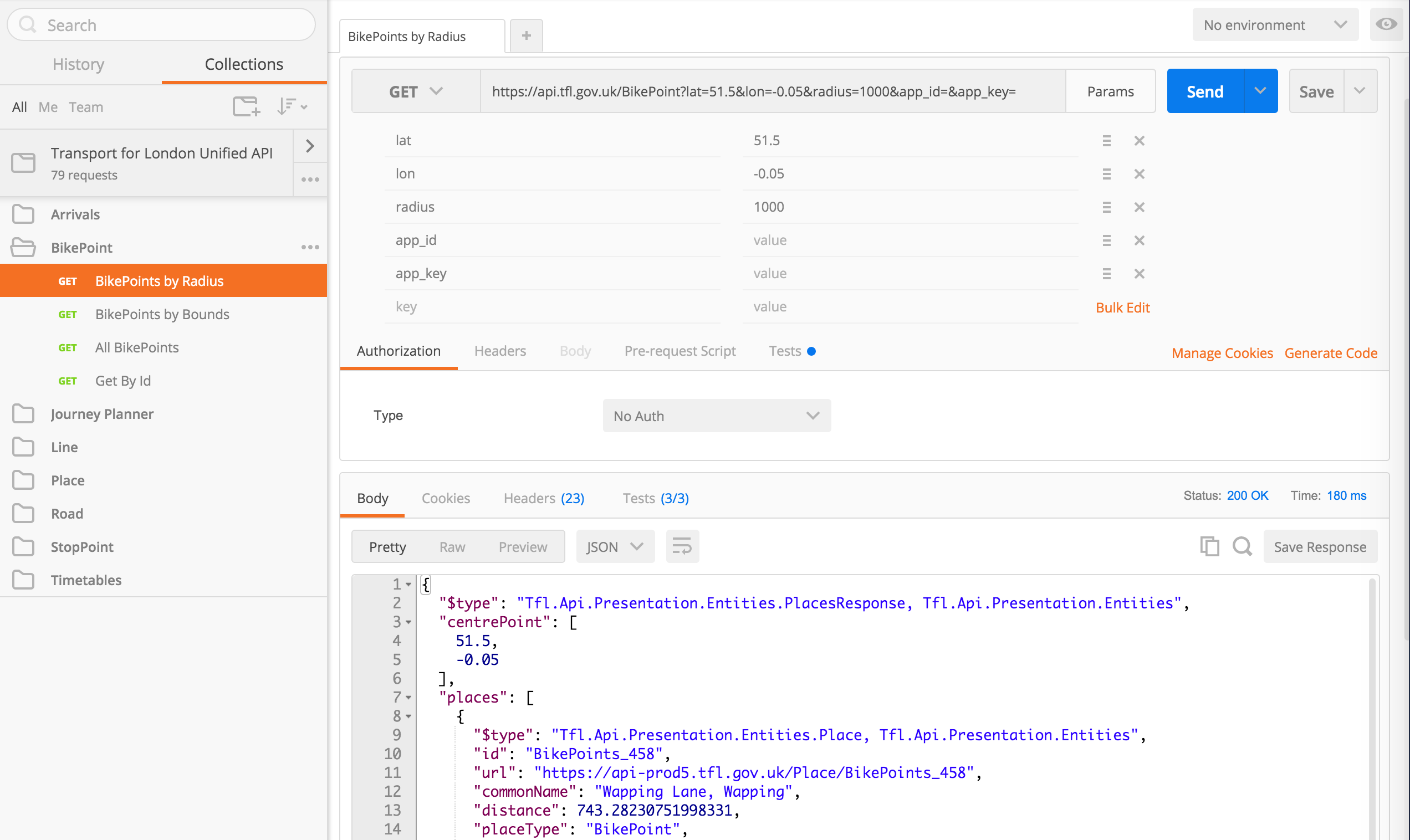
Rating: 4.6/5 (G2)
Key Features:
- Various API tools, from generation to testing
- API documentation features
- API governance tools
Postman is a functional API platform, offering essential tools for API development, testing, and management. It supports multiple authentication protocols and enables efficient organization of requests into reusable collections.
The platform streamlines API development by allowing the linkage of requests through JavaScript, automating workflows, and enabling API response visualization through scripting.
Postman provides a free plan, alongside Basic, Professional, and Enterprise plans, with Basic starting at $12 per user/month.
How API Management and API Generation are Connected
API generation and API management are integral parts of the API lifecycle, working together to facilitate the efficient development and maintenance of APIs. API generation involves the automated creation of APIs from existing data sources or services, allowing developers to quickly define endpoints, methods, and data models without manual coding. This process leverages tools that connect directly to databases or cloud services, generating APIs that expose operations needed for application interactions.
In contrast, API management focuses on the deployment, monitoring, and maintenance of APIs post-generation. It ensures APIs are secure, reliable, and scalable by providing features such as authentication, authorization, rate limiting, and traffic management. API management platforms also offer analytics and monitoring tools to track usage patterns and performance metrics, helping organizations understand API consumption and optimize their operations. Additionally, these platforms handle API documentation, versioning, and policy enforcement, ensuring consistent standards and compliance across the API ecosystem.
The synergy between API generation and management lies in their continuous lifecycle integration. Modern platforms often combine these capabilities, enabling seamless transitions from API creation to management. This integration ensures that APIs are secure by design, as security policies and access controls are embedded from the outset. By providing a feedback loop where insights from API management inform future API updates and enhancements, organizations can maintain a robust and efficient API infrastructure that supports evolving business needs and technical requirements.
DreamFactory's API Generation Tool: Simplifying API Development
DreamFactory stands out in the realm of API management with its powerful API generation tool, a feature that significantly streamlines the process of creating custom APIs. This tool is a game-changer for developers, particularly in its ability to automatically generate RESTful APIs from a wide range of data sources.
DreamFactory's API generation tool significantly streamlines API creation by allowing automatic generation of RESTful APIs from databases like MySQL, SQL Server, and Oracle. This feature dramatically reduces the development time by eliminating extensive coding requirements.
Want to see how DreamFactory can blow through your API-related bottlenecks and help you achieve faster development cycles? Contact DreamFactory for a free, hosted trial of the platform now!
FAQs on API Management and API Generation
What are the primary challenges associated with developing and managing APIs?
Developing and managing APIs can be tedious, time-consuming, and costly. The process requires significant resources to create secure and reliable connections, and over 60% of companies experience deployment delays due to API security concerns. This makes effective API management crucial for optimizing these processes.
How can API management alleviate the costs and complexity of API development?
API management offers a suite of tools that streamline the development process, reducing the cost, time, and labor involved. These platforms provide prebuilt REST APIs, tools for custom API creation, and features like authentication, monitoring, and traffic management, which help alleviate bottlenecks associated with API development and maintenance.
What is the role of an API manager in a development ecosystem?
An API manager acts as a gateway between systems and APIs, handling requests, responses, and ensuring security, stability, and control. It manages the interactions with APIs, providing a centralized point for monitoring, authentication, and rate limiting, which helps in maintaining a robust and secure API environment.
What are the key components of an API management platform?
The essential components of API management include a Developer Portal for API discovery and subscription, an API Gateway for managing interactions, and API Lifecycle Management for overseeing the entire process of API usage. These elements work together to simplify the development and integration of APIs into applications.
How do API management tools contribute to agile and loosely-coupled systems?
API management tools support agile, loosely-coupled systems by handling API connections through an API manager, reducing the need for tightly coupled integrations. This flexibility minimizes coding conflicts, speeds up development, and allows for faster updates and changes, making it easier to manage microservice-based applications.
What benefits do API management platforms offer in terms of security and compliance?
API management platforms enhance security by implementing standardized authentication methods, such as role-based access control, and ensuring compliance with standards like SOC2, PCI DSS, and GDPR. They provide alerts and safeguards against vulnerabilities such as broken authentication and excessive data exposure, helping organizations maintain secure API infrastructures.
How does API management facilitate API lifecycle management?
API management simplifies API lifecycle management by providing tools for creating, publishing, deploying, versioning, monitoring, and discovering APIs. Platforms like DreamFactory offer point-and-click API creation tools that generate REST APIs automatically, reducing the time and cost involved in developing and maintaining custom APIs.
Fascinated by emerging technologies, Jeremy Hillpot uses his backgrounds in legal writing and technology to provide a unique perspective on a vast array of topics including enterprise technology, SQL, data science, SaaS applications, investment fraud, and the law.
























 Blog
Blog
